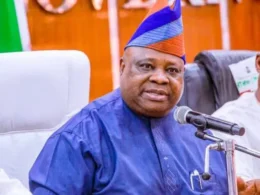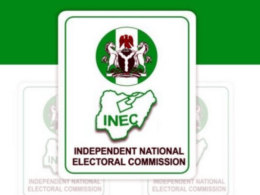The Nigerian Church is currently experiencing significant upheaval, revealing deep-seated tensions within its ranks. This turmoil is rooted in the longstanding debate between prosperity theology and traditional Christian teachings.
For over four decades, the rise of prosperity gospel in Nigeria has been a major source of contention. Prosperity theology, popularized by American televangelists, posits that financial success and health are guaranteed through faith and generous giving. This contrasts sharply with traditional Christian doctrines that emphasize salvation and spiritual growth over material wealth. Historically, the Church in Nigeria adhered to the selfless example set by early figures like Samuel Ajayi Crowther and Ayo Babalola, who lived in modesty and focused on spiritual, rather than material, wealth.
- Archbishop Benson Idahosa: In the 1980s, Idahosa popularized prosperity teachings in Nigeria, advocating that wealth was a divine blessing and urging followers to give generously to the church. His teachings marked a shift from the traditional focus on salvation to a more materialistic approach.
- Professor John Moyibi Amoda: A critic of prosperity theology, Amoda’s focus on salvation rather than material success led to limited growth for his church, as he clashed with the prevailing trend. His outspoken criticism of prominent figures in the prosperity movement, including Pastor Enoch Adejare Adeboye, drew widespread condemnation.
- Pastors Temitope Joshua and Chris Oyakhilome: Both have faced criticism for promoting faith healing over medical treatment, leading to the deaths of some followers who forewent necessary medical care.
Dr. Abel Hankuri Damina of Power City International has emerged as a prominent figure challenging the prosperity gospel. Known for his Biblical-based teachings and critical stance against prominent prosperity preachers, Damina has sparked significant debate. His criticisms include:
- Rejection of Prosperity Gospel: Damina argues that wealth is not a sign of divine favor and challenges the notion that financial contributions guarantee spiritual benefits.
- Critique of Tithing and First Seed: He argues that tithing and special offerings are often used to manipulate and exploit followers, claiming they are not biblically mandated.
- Public Disputes: Damina has faced scorn from other prominent pastors, including Pastor David Ibiyome and Pastor Paul Eneche, who have disparaged him personally and professionally. Pastor Tunde Bakare, a prominent pastor, has also criticized Damina, although he has his own controversies, such as his failed prophecy about becoming Nigerian President.
The controversy underscores a broader struggle within the Nigerian Church between traditional Christian values and newer, prosperity-focused teachings. While prosperity preachers advocate for material success as a sign of divine blessing, critics like Damina emphasize a return to the core message of Christianity centered on salvation and spiritual integrity.
This debate reflects a broader global conversation about the role of wealth in religion and the ethical implications of prosperity teachings. As the Nigerian Church navigates these internal conflicts, the outcome will likely shape its future direction and influence across the Christian community.









